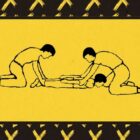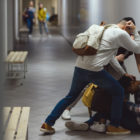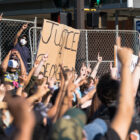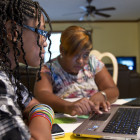
We moved to Clayton County, GA in 1974. I was 14 years old. I had lived in nine different cities from California to New York, and back to our southern roots when my father was transferred to the Centers for Disease Control and Prevention (CDC) in Atlanta. My childhood took me many places. I met a lot of kids of all physical, emotional, spiritual, and social shapes and sizes. Benjamin Disraeli once said that “Travel teaches toleration.” In hindsight I must agree with the former British Prime Minister. My travels have introduced me to different religious beliefs, political and social thoughts, and people of all colors and cultural backgrounds. My childhood friends were white, black, red, yellow, and brown. They were Jewish, Buddhist, Hindu, Islamic, Christian of all denominations, atheist, and agnostic. They came from families of varying political persuasions from conservative to liberal, from Republican to Democrat to Independent, and with economic tastes from capitalism to socialism in varying degrees.
My many childhood friends from coast to coast in a thirteen year time span expanded my understanding of diversity and taught me to be tolerant of those with different cultures and beliefs. However, toleration, I have learned, is a double edge sword. In the words of Edmund Burke, “Toleration is good for all, or it is good for none.” The determinative question when the tolerant sword is cutting is “Which side of the sword is doing the cutting?” Is it the cutting edge that promotes the acceptance of people regardless of their differing beliefs or the edge that promotes the acquiescence of conduct hurtful toward others? The former is good for al l, the latter is good for none. This concept of toleration raises an interesting paradox when applied to the arrest of kids on school campuses. I think we can all agree that there should be no toleration of student disruption of any kind. I helped to raise three children. They are now adults and doing quite well. All my kids attended public schools.






